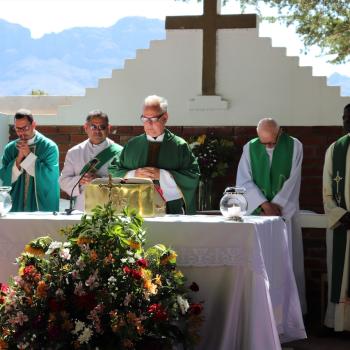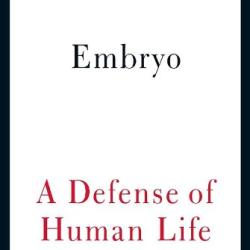Photo credit: pixabay.com
When I was in Grade 8, a few friends and I were sitting in computer class at school while our instructor left the room to check something at the office for a while. As adolescent boredom got the better of us, we began to throw pens at the ceiling fan to watch them get launched across the room while the teacher was absent. As I grabbed one of the last pens in our possession and tossed it upwards, it exploded as soon as it struck the fan blades, sending a streak of red ink on the walls all along the perimeter of the room. It so happened that the pen I threw wasn’t a typical ballpoint pen, but a refillable one. I panicked as I feebly attempted to wipe the red spatter off the walls and the computer monitors as though I had just committed a bloody murder while the rest of the class laughed and gazed in horror.
Even though I immediately regretted what I had done, it did not exempt me from having to take ownership of the the results of my actions. As punishment, I had to stay after school to wash all the walls and wipe down the computer monitors in the room. It turned out none of my peers were in any trouble for initiating the pen-tossing game since the mess was not theirs to clean up. No amount of apologies would have freed me from the fact that this mess was my own, but thankfully the school janitor was there to help guide me along to clean it properly.
I would imagine the majority of us remember getting in trouble at school, disobeying our parents or even breaking the law at some point in our lives. It’s never a pleasant thing to be caught in the act of wrongdoing. Sometimes we either don’t think what we are doing in the moment is wrong or bears any consequence afterwards. Even the thought of doing something we probably shouldn’t be doing can be quite exhilarating – especially if there is a chance we can get away with it.
When someone commits a crime, they are subject to the punishments the law requires to uphold justice against what was done wrong. In cases of murder, sexual assault, theft or fraud, usually that involves imprisonment for an indefinite amount of time, depending on the degree of the crime. For lesser or milder offences like parking in a handicap stall or going slightly over the speed limit while driving there is usually a fine to pay. Although punishments for wrongdoing at home or at school are usually less severe than paying a fine, these are meant as a way of helping the child to understand that the gravity of their actions involves some kind of consequence. Kids might be grounded from video games or going out with their friends for an indefinite period, or their teachers at school might make them write lines, sit in detention or stay after school to perform some act of service.
As a young lad, sometimes when I fought with my siblings or got in trouble with my parents I would have to say ‘sorry’ for my actions. Admittedly, there were times when I would apologize for the sake of getting off the hook easier, but more often than not my attitude would show in the tone of my voice. In cases like this, the apology isn’t really sincere unless I actually mean what I say – especially if I plan on going back to repeating the same offence all over again.
From a Christian worldview, there is this notion that we are all sinners who need repentance – but what does that even mean? Being told that we are sinful or unworthy is not something we like to hear, whether we are religious or not. But I think an easy way to describe it would be that human nature has a natural tendency to rebel – whether it is against our parents, our instructors or peers at school, cultural norms, capitalism or even government institutions. I think one way to describe Original Sin simply is that it’s mankind’s natural tendency to rebel against a higher power. 1
If this higher power is supposedly a loving God, then why would it want to send people to a place of torment such as Hell just because we refused to obey Him? And if rebelling is something we actually enjoy doing, why would we even want to stop?
Some would say that if I’m not causing harm to others, then why should I stop what I enjoy doing? Why would God be offended by something that isn’t directly harming others? Some religious folk would say that our lives are a gift and our bodies are temples of the Spirit of our Creator. Sometimes I think we feel so comfortable in our own desires to do what we feel like doing that we suffer a severe case of cognitive dissonance when we realize what we enjoy doing causes harm to not only others, but ourselves as well.
We all love to indulge in our favorite foods once in a while. But if we had no self-control, our bodies would accumulate the unhealthy carbs, cholesterol, sugars or fat over a period of time and then health issues would ensue as a direct result of our lack of dietary discipline. Sometimes I think there comes a point in time when I would look in the mirror and say to myself, ‘Wow! I need to cut back on the sweets and eat more vegetables! Maybe I should even try exercising more!’ To me, that would be like a moment when someone realizes the gravity of their actions and would consider taking steps to counteract the effects. That would be a moment where I would be sorry for my actions that led me to neglect the gift of my body’s health.
In a way, I think this applies to our spiritual lives as well.
There really is something to be said about respecting our bodies as a temple. 2 If we harm, dishonor or abuse our bodies, wouldn’t that be like showing a lack of respect and appreciation to the One who gave us the gift of life? 3 Perhaps this implies we ought to make the best use of our lives and our bodies for what they were created for? The Bible states,
“I appeal to you therefore, brethren, by the mercies of God, to present your bodies as a living sacrifice, holy and acceptable to God, which is your spiritual worship.”
– Romans 12:1 RSV
The word sacrifice can seem like such a strong word, it seems. People often associate sacrifice with some kind of blood ritual or burnt offering in exchange for the forgiveness of sins. People who are ‘spiritual’ as opposed to being religious commonly refer to verses in the Bible that describe how God desires mercy and not sacrifice. 4 But isn’t love supposed to be a form of sacrifice in itself? And if we truly love God the way we say we do, wouldn’t we be willing to offer ourselves as living sacrifices to Him as He did for us? 5
To be honest, making little sacrifices here and there is something I really struggle with – especially when I live in a culture that places so much emphasis on convenience and instant gratification. When I work a full-time job during the day, the last thing I ever want to do is to do more work when I get home. When I come home from work, sometimes I’d rather order from Skip The Dishes than go through the work of planning a healthy meal. On Friday, I’d rather go out and indulge myself in beer and chicken wings than abstain from meat. Even while I’m at work, I’m usually so inwardly focused on how tired I am that making meaningful conversation with my coworkers seems like a giant chore. When I think about it, if I saved every dollar I’d be spending on coffee every morning for over a year, that money could be put to even better use by donating to a charity while choosing to make coffee at home for less.
It seems like giving up the little comforts are indeed sacrifices. 6 If more people (myself included) chose to think outside of themselves and make little sacrifices, the world would certainly be a better place. That is definitely not something that can be attained by human effort alone – that requires the influence of a higher power!
Penance is often referred to as making little sacrifices for God. Because it’s a common term used in Catholic theology, the very word seems to come across as a bit of a dirty word for many Protestant Christians. As a former Evangelical, the first thing that often came to mind when I heard the word ‘penance’ was reciting some repetitious prayer or doing good deeds for the sake of earning brownie points from God so I don’t have to end up in Hell. But from a Catholic standpoint, penance is considered to be an act of repentance. Although it includes visibly outward expressions of faith such as confession, prayer, fasting and almsgiving, these all come after an interior conversion of the heart. 7
When Christians talk about being ‘saved’, they usually put emphasis on the eternal consequences of sin because it is the most important aspect of salvation. But not only does the Bible talk about eternal justice, but earthly consequences as well. The first example of temporal punishment would be when Adam and Eve ate the Forbidden Fruit in the Garden of Eden. The results of their sin was they were doomed to die 8, but the earthly consequences of their sin was Adam had to toil the land until the end of his life and Eve, along with all women born after her, would have to endure labor pains while giving birth to children. 9
It seems as though there exists some sort of ‘spiritual physics’ when it comes to our actions. It’s like everything we do is interconnected with other people’s destinies and the entire fabric of the universe; and even the slightest iniquity or act of faith causes a cosmic disturbance which ripples into eternity. 10
An example of an earthly consequence I can think of within a 21-century context is if a guy and a girl have a drunken one-night stand and a pregnancy results from it. It is possible that the guy and the girl could feel sorry and regretful for their actions and look to God for forgiveness, but that does not reverse the pregnancy nor the responsibility that comes with it. Although the topic of abortion is meant for an entire article of its own, I’m of the position that having an abortion would not benefit the unborn child, the woman nor the man whether either of them are willing to parent the child or not. Two wrongs don’t make a right. In order to counteract against what was done wrong, the right thing to do in my opinion would be for the guy to somehow support and care for the girl throughout her pregnancy in order to carry the child to term, even if it means the child ends up in adoption or foster care after birth. Although every situation is different, it would not be a respectable manner for the man to simply apologize to the woman he impregnated just for the sake of relieving himself from the responsibility of fatherhood. Nor should he coerce the woman into having an abortion – believe it or not, cases like these do happen! Even if maintaining a relationship with the woman isn’t possible, supporting her and her unborn child in whatever means possible (whether it be tangibly or financially) would be the best possible choice – even if it was done at an arms length.
To me, this is an example of a repentant attitude – something that would counteract the temporal consequences that was done with the help of God’s grace.
When it comes to penance, we are called to acknowledge our shortcomings and turn to God, but it doesn’t just stop there. Avoiding sin requires a conscious effort paired with an openness to God’s grace on the individual’s behalf. 11 Repairing the damage caused by sin can seem like literally washing with dirty rags 12 – especially in the case of my exploding pen incident! But the nice thing about how God loves us is that we don’t have to do it alone.
Like the janitor who guided me on how to clean the ink off the walls and computers properly, God is always open to guide and work through us in every situation. 13
“Miss no single opportunity of making some small sacrifice, here by a smiling look, there by a kindly word; always doing the smallest right and doing it all for love.”
– St. Thérèse de Lisieux
References:
1 1 John 3:4, James 2:9-10
2 1 Corinthians 6:19-20
3 Hebrews 10:26
4 Hosea 6:6; Matthew 9:13, 12:7
5 John 21:15-18
6 Matthew 4:20, Mark 12:41-44, Luke 7:36-50
7 CCC 1430, 1431, 1432
8 Genesis 2:16-17, Romans 6:23
9 Genesis 3:6-19
10 Luke 15:7, Pope Pius XII in Mystici Corporis Christi, Paragraph 44
11 Galatians 5:16, James 5:16, Philippians 2:12, Ephesians 2:8-9
12 Isaiah 64:6
13 Proverbs 3:5-6, Galatians 2:20
















